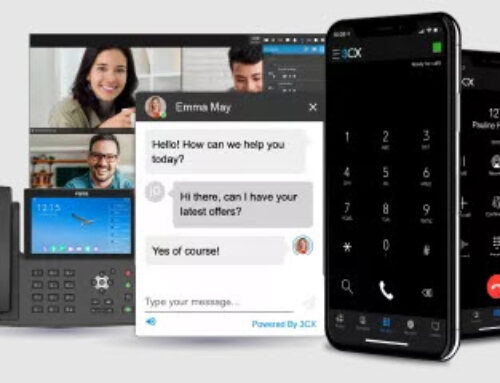Voice over Internet Protocol (VoIP) and traditional phone systems have both been used by businesses for many years. However, as technology has advanced, more and more businesses are making the switch to VoIP systems. In this article, we will compare VoIP vs traditional phone systems and help you decide which one is better for your business.
What is VoIP?
VoIP stands for Voice over Internet Protocol. It is a technology that allows you to make phone calls using your internet connection instead of a traditional phone line. VoIP systems use a variety of codecs to compress and transmit audio signals over the internet. They can be hosted on-site or in the cloud.
What are Traditional Phone Systems?
Traditional phone systems are also known as Public Switched Telephone Network (PSTN) systems. They use analog signals to transmit voice calls over copper wires. Traditional phone systems are often managed by phone companies, which means that businesses have to pay a monthly fee for their phone lines.
VoIP vs Traditional Phone Systems
- Cost
One of the biggest advantages of VoIP is its cost-effectiveness. With VoIP, you can save a lot of money on long-distance and international calls. Unlike traditional phone systems, there are no per-minute charges for calls made over the internet. In addition, VoIP systems can be easily scaled up or down, which means you only pay for what you need.
Traditional phone systems can be expensive to maintain, especially if you have multiple phone lines. You may also need to invest in additional hardware and software to expand your system.
- Features
VoIP systems offer a wide range of features that are not available with traditional phone systems. Some of the most popular VoIP features include call forwarding, voicemail, caller ID, video conferencing, and virtual phone numbers. These features can be very useful for businesses that have remote workers or need to collaborate with clients in other locations.
Traditional phone systems, on the other hand, are limited in terms of features. They generally offer basic features such as call waiting, call forwarding, and voicemail.
- Reliability
Both VoIP and traditional phone systems can be reliable, but they have different issues that can cause downtime. VoIP systems rely on internet connectivity, which means that if your internet connection goes down, your phone system will go down too. However, VoIP systems can be set up with redundancy to ensure that you always have a backup connection.
Traditional phone systems are more reliable in terms of uptime, but they are also more vulnerable to physical damage. For example, if there is a power outage or a natural disaster, your traditional phone system may not work.
- Mobility
VoIP systems offer great mobility, as they can be accessed from anywhere with an internet connection. This means that you can use your VoIP phone number on your smartphone, tablet, or laptop, allowing you to work remotely or on the go.
Traditional phone systems are not as mobile-friendly. They require physical phone lines, which means that you have to be in the office to use them.
Conclusion
Both VoIP and traditional phone systems have their pros and cons, and the choice between the two ultimately depends on your business needs. If you need a cost-effective and feature-rich system that is easy to scale and accessible from anywhere, VoIP is the way to go. However, if you prioritize uptime and reliability, and don’t need a lot of advanced features, traditional phone systems may be the better choice.








